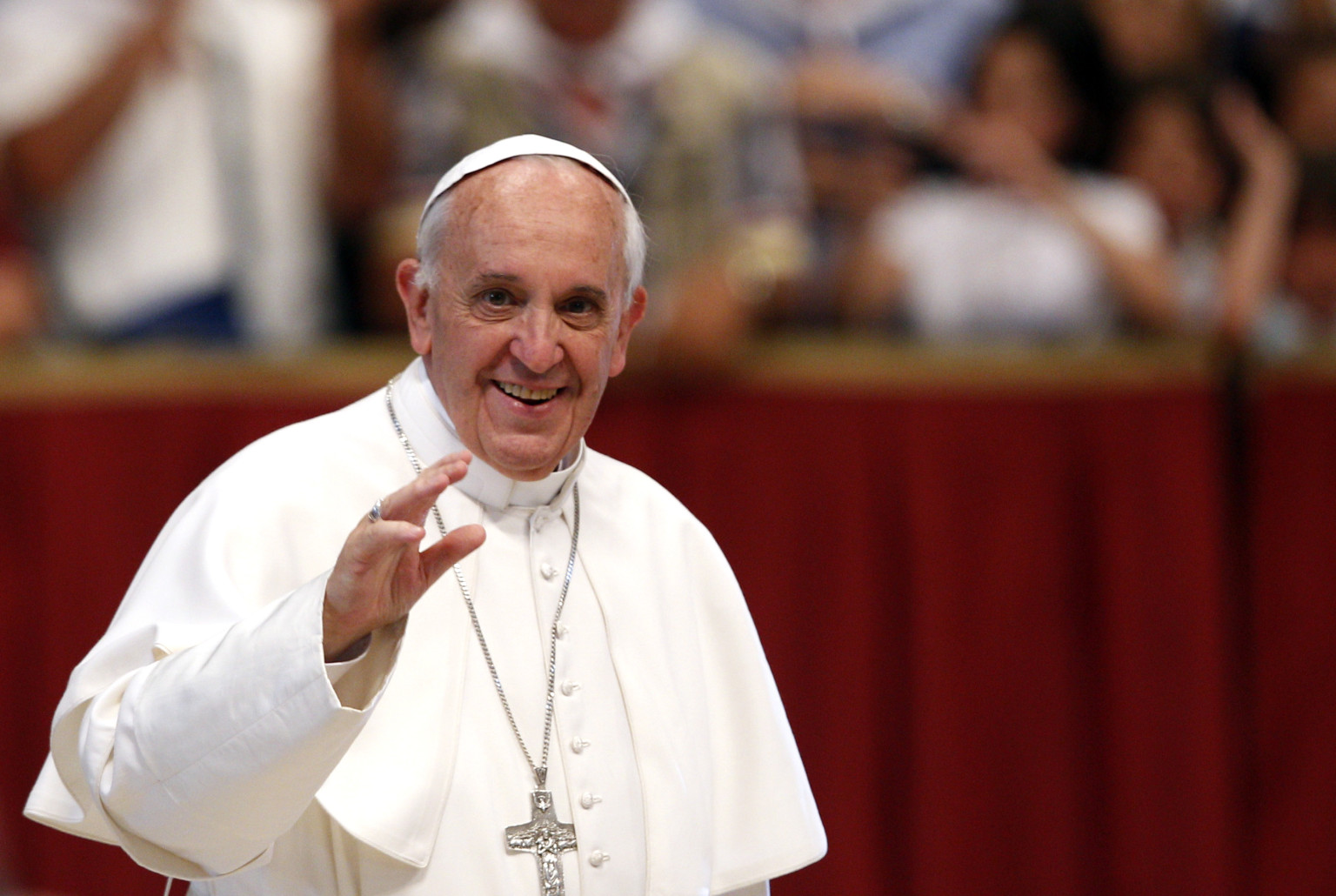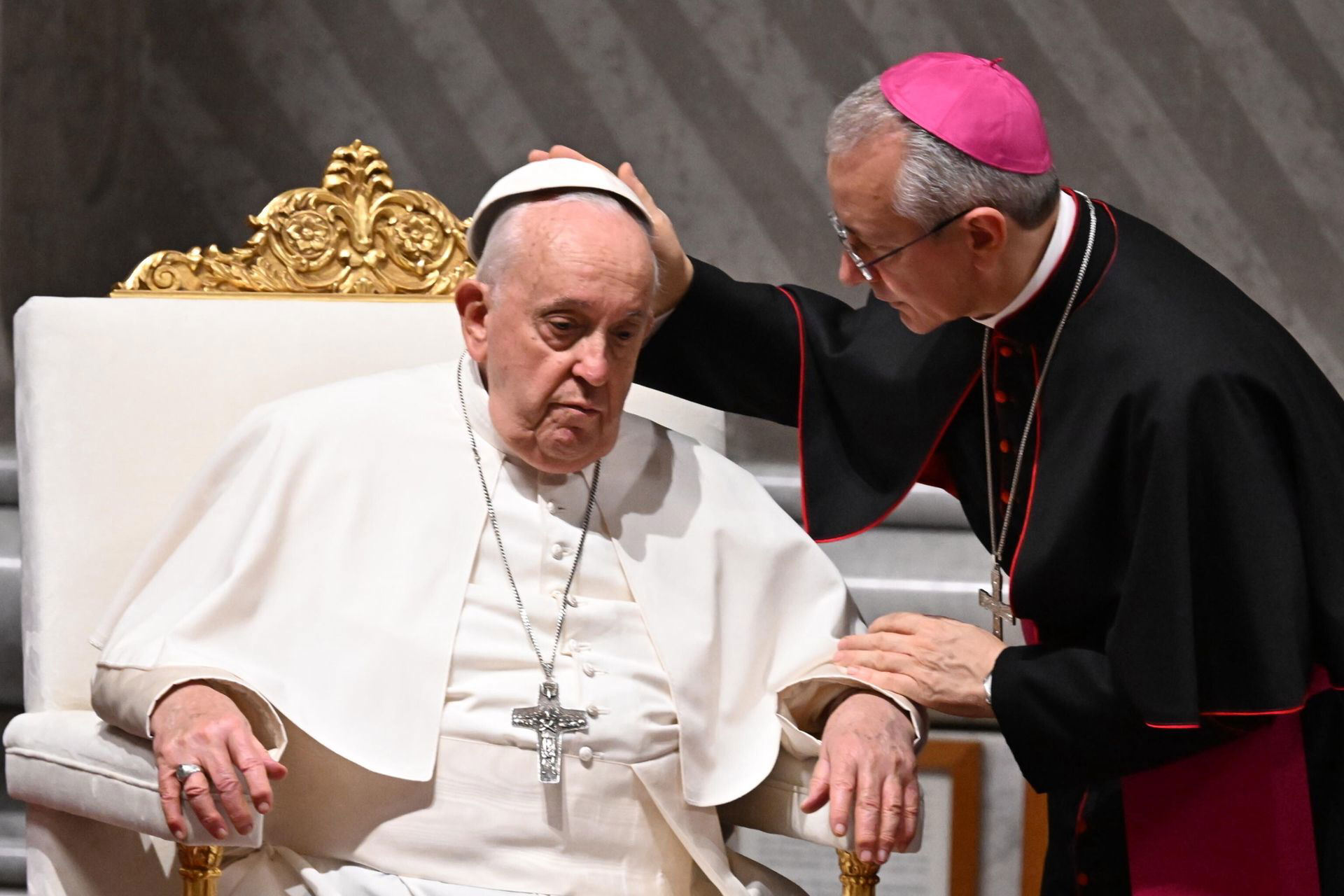Pope Francis's Impact: Challenges And Opportunities For The Next Papacy

Table of Contents
Francis's Legacy: A Reformist Papacy
Pope Francis's papacy has been characterized by a reformist spirit, challenging traditional approaches and setting a new direction for the Catholic Church. This transformative leadership has created both opportunities and resistance.
Emphasis on Social Justice and Environmental Concerns
Pope Francis prioritized social justice and environmental issues, significantly impacting the Church's public image.
- Laudato Si' and its impact on environmental policy within the Church: His encyclical, Laudato Si', has spurred numerous initiatives promoting environmental stewardship within the Catholic Church, advocating for sustainable practices and raising awareness about climate change. This has resonated deeply with younger generations concerned about the planet’s future.
- Focus on the poor and marginalized populations globally: Francis consistently emphasized the Church's moral obligation to serve the poor and marginalized, advocating for economic justice and challenging systemic inequalities. This focus has strengthened the Church's commitment to social justice initiatives worldwide.
- Increased dialogue with other faiths and world leaders on social issues: The Pope fostered interfaith dialogue and collaborated with world leaders on issues such as poverty, migration, and peace. This broadened the Church’s engagement in global affairs, improving its image as a force for positive change.
These initiatives have broadened the Church's appeal, especially amongst younger generations. However, they have also faced resistance from more conservative factions within the Church who believe these priorities detract from core theological tenets.
Modernization of Church Governance
Pope Francis initiated significant reforms within the Church's governance structure.
- Reforms to the Roman Curia: He aimed to streamline the Roman Curia, making it more efficient and less centralized. These efforts included restructuring departments and promoting greater transparency.
- Increased transparency and accountability within the Vatican: Francis championed increased transparency and accountability, addressing concerns about financial mismanagement and internal corruption within the Vatican.
- Efforts to decentralize power and empower local churches: He emphasized empowering local churches and bishops, allowing for greater autonomy in decision-making and better responsiveness to local needs.
While these reforms demonstrate a commitment to modernization, implementing them within a centuries-old institution has proven challenging. Resistance from entrenched interests and the inherent complexities of reforming such a vast organization continue to present obstacles.
Shifting Attitudes on Issues of Morality and Sexuality
Pope Francis's approach to issues of morality and sexuality has been notably more pastoral than his predecessors.
- More inclusive language towards LGBTQ+ individuals: While maintaining the Church's traditional teachings on marriage, he has adopted a more compassionate and less judgmental tone towards LGBTQ+ individuals, emphasizing pastoral care and accompaniment.
- Focus on pastoral care over strict adherence to traditional doctrines: He stressed the importance of pastoral care and mercy, prioritizing individual circumstances over strict adherence to traditional doctrines in certain cases.
- Debates on issues such as divorce and remarriage: His approach has sparked ongoing debates on issues such as divorce and remarriage, leading to increased discussion and a more nuanced understanding of these complex matters within the Church.
These shifts in approach have significantly impacted the Church's relationship with its members, particularly younger generations. However, they have also generated controversy and further exposed divisions within the Catholic community.
Challenges Facing the Next Papacy
Pope Francis's legacy presents substantial challenges for his successor.
Internal Divisions and Conservatism
The Church remains deeply divided on several key issues.
- The continued resistance to reform within the Church hierarchy: Significant resistance to Pope Francis's reforms persists within the Church hierarchy, creating internal tensions and potentially hindering future progress.
- The struggle to balance tradition with modernity: Balancing the Church's rich traditions with the demands of a rapidly changing world remains a crucial challenge, demanding a delicate approach.
- The need to address internal conflicts and differing theological viewpoints: Internal conflicts and varying theological interpretations require careful navigation and a commitment to fostering dialogue and understanding amongst differing viewpoints within the Church.
The next Pope will need to skillfully address these divisions to maintain unity and facilitate constructive dialogue.
Global Challenges Facing the Church
The Church confronts significant global challenges.
- Declining church attendance in Western countries: The decline in church attendance in many Western countries is a significant concern, requiring innovative strategies to engage younger generations and maintain relevance.
- The rise of secularism and religious pluralism: The rise of secularism and religious pluralism necessitates a renewed approach to evangelization and interfaith dialogue, emphasizing cooperation and understanding.
- Addressing the issue of clerical abuse and regaining public trust: Addressing the ongoing crisis of clerical abuse and regaining public trust requires decisive action, transparency, and accountability at all levels of the Church.
These global challenges necessitate a proactive and innovative approach from the next Pope, requiring both bold leadership and a commitment to healing and reconciliation.
Maintaining Unity in a Diverse Church
The global Catholic Church is incredibly diverse.
- Navigating differing viewpoints on social and moral issues within the global Catholic community: The next Pope must navigate the diverse viewpoints on social and moral issues across different cultures and regions, promoting dialogue and understanding.
- Addressing the needs of diverse cultural contexts: The Church must effectively address the specific needs of various cultural contexts, ensuring that its teachings and practices remain relevant and meaningful in diverse settings.
- Fostering dialogue and understanding between different factions: Fostering open and honest dialogue between different factions within the Church, including those holding opposing views on key issues, is critical for maintaining unity.
Maintaining unity in a diverse global Church requires sensitivity, empathy, and a deep understanding of different cultural and theological perspectives.
Opportunities for the Next Papacy
Despite the challenges, Pope Francis's papacy also created significant opportunities for his successor.
Building on Francis's Legacy
The next Pope can leverage the positive aspects of Francis's papacy.
- Expanding upon Francis's focus on social justice and environmental stewardship: Building on Francis's commitment to social justice and environmental concerns, the next Pope can further strengthen the Church's advocacy for the poor and marginalized, and its commitment to environmental protection.
- Continuing the modernization of church governance: Continuing the modernization of church governance, focusing on greater transparency, accountability, and decentralization will create a more efficient and effective Church.
- Furthering dialogue and collaboration with other faiths: Expanding interfaith dialogue and collaboration, promoting mutual understanding and cooperation on shared global challenges, will strengthen the Church's positive impact on the world.
Building upon Francis's legacy will allow the next Pope to advance the Church's mission effectively.
Addressing Emerging Challenges with Innovation
Innovative approaches are crucial to tackle the Church's challenges.
- Engaging younger generations through new media and outreach programs: The Church needs to effectively engage younger generations through innovative use of media and outreach programs, adapting its communication styles to resonate with a digitally native population.
- Addressing the crisis of clerical abuse with decisive action: Decisive action and full accountability are essential to addressing the crisis of clerical abuse, restoring trust, and ensuring the safety of children and vulnerable adults.
- Embracing technology to foster communication and community: Embracing technology to foster communication and community within and beyond the Church will strengthen connections and enhance its outreach capabilities.
Creative solutions and forward-thinking strategies will be needed to overcome existing hurdles.
Strengthening the Church's Global Presence
The Church has opportunities for growth and impact.
- Supporting the growth of Catholicism in developing countries: Supporting the growth of Catholicism in developing countries, providing resources, and fostering local leadership will strengthen the Church's global presence and impact.
- Fostering intercultural dialogue and understanding: Fostering intercultural dialogue and understanding, promoting inclusivity, and respecting diverse cultural expressions within the Church will enhance its global reach and influence.
- Expanding missionary work to new regions: Expanding missionary work to new regions, adapting to the specific needs and contexts of diverse populations, will broaden the Church's global reach and expand its positive influence.
The next Pope can strategically strengthen the Church's global presence and impact.
Conclusion
Pope Francis's impact on the Catholic Church is profound and multifaceted. His papacy has left a lasting legacy, presenting both substantial challenges and exciting opportunities for his successor. The next Pope will need to skillfully navigate internal divisions, address global challenges, and build upon the strengths of Francis's tenure. The future of the Catholic Church hinges on the next Pope's ability to effectively embrace the opportunities and confront the challenges inherited from the transformative impact of Pope Francis's leadership. Understanding Pope Francis's impact is crucial to understanding the future direction of the Catholic Church. Learn more about the complex legacy of Pope Francis and the future of the papacy – research the extensive writings and actions of Pope Francis to gain a deeper understanding of his significant impact.

Featured Posts
-
 Jeff Bezos Space Ambitions Falter A Bigger Blow Than Katy Perry S
Apr 22, 2025
Jeff Bezos Space Ambitions Falter A Bigger Blow Than Katy Perry S
Apr 22, 2025 -
 Turning Poop Into Podcast Gold An Ai Powered Approach To Repetitive Documents
Apr 22, 2025
Turning Poop Into Podcast Gold An Ai Powered Approach To Repetitive Documents
Apr 22, 2025 -
 Putin Ends Ukraine Truce Renewed Conflict Intensifies
Apr 22, 2025
Putin Ends Ukraine Truce Renewed Conflict Intensifies
Apr 22, 2025 -
 The Writers And Actors Strike What It Means For Hollywood
Apr 22, 2025
The Writers And Actors Strike What It Means For Hollywood
Apr 22, 2025 -
 Pope Francis Passes Away At Age 88 Following Illness
Apr 22, 2025
Pope Francis Passes Away At Age 88 Following Illness
Apr 22, 2025
